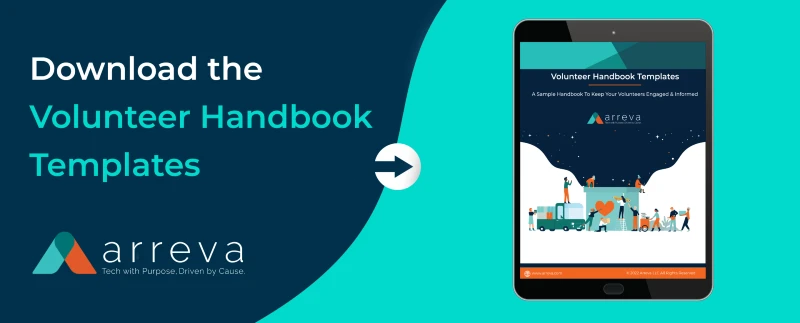Motivation is Key When It Comes to Volunteer Management

According to the US Bureau of Labor Statistics, a quarter of the country’s total population volunteers. It’s truly inspiring that so many people contribute their time and efforts for free to advance charity causes.
Volunteers are central to a nonprofit's success, but they also share a mutual relationship with the organization. While people complete a variety of tasks to advance the charity’s mission, during the process, they also develop skills and gain new experiences. To best motivate your volunteers to become champions for your cause and perform their duties to the best of their abilities, take a look at the tips below for effective volunteer motivation and management.
Find Out Their Personal Goals
Volunteers contribute their time to your nonprofit for many different reasons. Some are passionate about a cause, some want to be part of a community, while others want to gain new experiences. To ensure volunteers find value in their work and enjoy what they do, chat with them regularly to learn about their goals and interests.
Provide Excellent Training
Volunteer orientation not only introduces people to their duties but also offers them an insider look at how the organization operates. Well-run and engaging training programs motivate individuals to commit more to the non-profit organization. There should also be ongoing training to support volunteer growth and development.
Be Transparent and Accessible
An effective volunteer manager is transparent, accessible, and not authoritarian. He or she is accurate and clear about expectations and policies and is receptive to volunteers’ concerns and feedback. Coordinators, who lead by example and get their hands dirty—contrary to just giving orders—earn people's trust and respect.
Help Them Gain New Experiences and Skills
People who are willing to volunteer are usually curious and eager to learn, so make volunteer roles meaningful for them. Diversify volunteer tasks: make the duties challenging enough for people to develop new skills but not so difficult that individuals lose interest. Provide opportunities for people to gain new experiences and to connect with others they don’t normally interact with. Rewarding experiences will keep volunteers loyal to the organization.
Recognize Volunteer Contributions
Volunteers come from diverse backgrounds, so there is no one-size-fits-all way for volunteer recognition. Be flexible and creative with your method of appreciation. Positive feedback, free snacks, personalized thank-you letters on handwritten cards, and small customized gifts are some examples. Volunteers also feel appreciated when they are included in the workplace. Introduce them to other nonprofit employees at the site, and occasionally invite them to attend staff meetings. Seeing the actual impact of their contributions is another great motivator. Therefore, share the organization’s triumphs not just with staff members but also with volunteers, and thank them for being integral to your nonprofit’s success.
Care About Your Volunteers
Another key volunteer management strategy is to genuinely care for your volunteers’ well-being by checking in with them regularly to ensure they are doing well. Kindly remind your volunteers to get enough sleep, drink lots of water, and stay healthy physically and mentally. Be observant, and when someone appears to be disengaged or burnt out, be understanding and offer helpful suggestions. You should also be accommodating when they need to switch schedules or take time off. Volunteers are more willing to work with employees who are considerate and caring.
Don’t Forget to Have Fun!
When people get too serious about getting things done, it is easy to forget to have fun. Keeping people engaged and laughing is one of the most effective volunteer management strategies. No matter how much work there is, keep up the optimism, since your volunteers’ energy is largely dependent on your own level of enthusiasm. You can also organize relaxing group trips and events for them to take a break and bond with each other. Being part of a community helps them develop an emotional attachment to the nonprofit.
Keeping volunteers motivated in getting involved in the organization will make managing them much easier. Regardless of the specific management approach you take, being genuine when interacting with different individuals is the most important.


